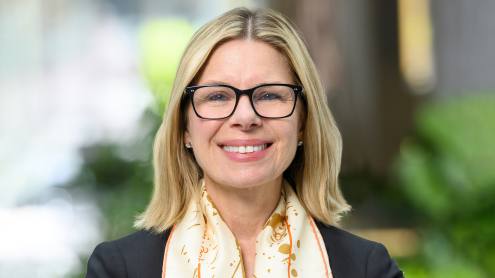Raghavan Seetharaman is Qatar’s longest serving banking chief executive, having been at the helm of Doha Bank, one of the country’s largest lenders, since the early 2000s.
He shares his thoughts on the unique challenges of 2020, as well as his outlook for the year ahead.
Q: What is the current state of the Qatari banking sector, and what have been the key developments over the past year?
A: The Qatari banking sector is facing challenging times, with the Covid-19 pandemic dramatically altering the economic and social landscape, resulting in changes that our generation has never witnessed before. It remains to be seen whether banking will respond in a way that amplifies or dampens the acute economic challenge.
However, from what we have seen since the epidemiological situation, banks have been quick to respond to the crisis with proactive regulatory and state level support. The sector remains strong in spite of the fallout due to the pandemic. Key performance indicators, such as return on equity, asset growth and operational profit are all healthy, albeit at lower levels than before the pandemic, as to be expected.
We recognise that the full impact of Covid-19 on loan performance will not be seen until the end of the government-sponsored payment holiday, but other income streams and performance indicators are strong — stronger than in most other countries.
The slowdown of global economic growth and activities has not stopped the Qatari banking sector in executing on its digital transformation, and we have witnessed many key developments on the customer interaction front taking place.
Q: With low-interest rates likely to continue, fee income becomes key. How are we seeing that take hold in Qatar?
A: Interest rates have been low for some time now. The Covid-19 impact has extended the tenure of low rates, as central banks across major developed markets signalled [their intention] to keep policy rates at near-zero levels for at least another two years.
Over this period of time, investors will seek alternative ways to increase portfolio resilience and performance through diversification of asset classes to include: precious metals; environmental, social and governance-linked investments; funds; private equity; and dividend-paying companies with solid balance sheets.
At Doha Bank, we have recently signed an agreement with Bank of Singapore to offer our clients wealth management solutions. Our aim is to offer wealth preservation and growth. It is a long-term relationship business that will contribute to the bank’s fee income.
Q: Has the pandemic offered a moment for banks to reflect on business plans and reassess priorities?
A: To compete and survive, banks across the world, as well in the region, must transform and embrace business models in line with the ‘new normal’ to drive growth and generate value. Among the main priorities of banks in the post-Covid-19 world, the most significant will be securing digital leadership following changes in consumer behaviour and online patterns.
Also, due to more digitisation of services and 5G experiences, remote working is expected to expand pools of candidates not bound by geographic locations across the Middle East and north Africa, as well as opening the opportunity to reshape the workforce model and talent management.
The pandemic has also shown that financial institutions must ensure the highest level of operational resilience and business continuity management, rethink traditional cost-management approaches, adopt more proactive risk management methodologies in line with current realities and [perform] better stress testing.
In response to the pandemic, banks and financial institutions also need much greater discipline around pricing and margins across both assets and liabilities. In the long term, this is likely to lead to reconsideration of portfolios, risk appetite and improvement in fee-based revenues.
Q: What are your predictions for key developments related to the Qatari economy?
A: Like most countries, Qatar witnessed quite a significant impact on several economic segments — mainly the tourism, hospitality, real estate and retail sectors. Although Qatar’s credit allocation towards real estate seems reasonable compared with regional peers, it is still material and demands strict vigilance on an ongoing basis.
Given the government’s commitment to lessen the impact of Covid-19 on the economy, coupled with the ongoing infrastructure development to gear up for the 2022 Fifa World Cup and the planned liquified natural gas production expansion, the Qatari economy will continue to perform well in the years ahead. Recent regulations, with respect to foreign ownership in the stock market and real estate sector, is expected not only to stabilise these sectors, but create a growth momentum as well.
Implementation of sustainability-driven strategies will play an important role — this will be of high importance for all industries, including the banking sector.












